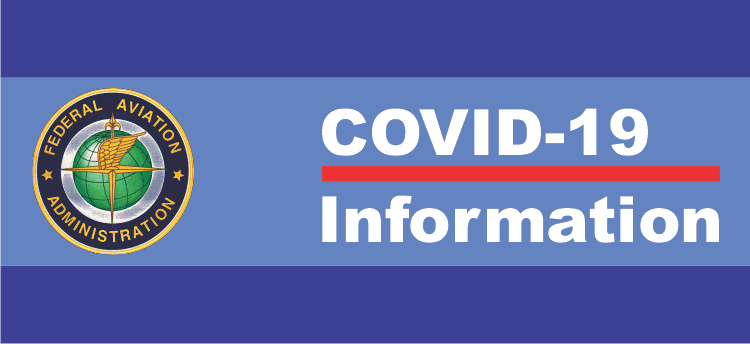FAA Procedures Update on COVID-19

This is another in a continuing series of bulletins that Aerlex Law Group is issuing to clients and friends of the firm to provide information regarding the effects of the Covid-19 pandemic on the business aviation community.
The United States Federal Aviation Administration (“FAA”) has taken a number of steps in response to the Covid-19 crisis.
Aircraft Registry Quarantines Physical Documents
Aircraft buyers and sellers who intend to close the sale of an aircraft need to know that the FAA Civil Aircraft Registry in Oklahoma City is now quarantining all incoming physical documents for 72 hours. This quarantine has no effect on documents that are submitted electronically.
The 72-hour quarantine applies to documents that normally would receive priority attention, including deregistration requests and declarations of international operations (“flight wire” requests).
Electronic submission of documents is limited to 20 pages. Electronic submission of files in excess of 20 pages must be broken into multiple submissions.
The 72-hour quarantine can also affect the FAA Registry’s issuance of International Registry authorization codes, which could also affect aircraft sales closings and financing transactions.
Air Carrier Training Exemptions
At the request of the National Air Transportation Association (“NATA”), the FAA has agreed to grant training exemptions to Part 119 certificate holders who conduct on-demand air carrier operations under Part 135.
Exemptions give (1) operators grace periods for completing certain recurrent and upgrade training, testing and checking requirements (Exemption 18510), and (2) crewmembers relief from having to don protective breathing equipment (PBE) or oxygen masks in training, checking, or evaluation (Exemption 18509).
Certificate holder MUST file Letter of Intent with the FAA to take advantage of either exemption.
Crewmembers and ground personnel who are required to complete recurrent training, testing, checking, recency or observation before May 31, 2020 are granted either a two-month or three-month extension under Exemption 18510.
The two-month extension applies to pilots in command (minimum number of takeoffs and landings required in preceding 90 days under §135.247(a)) and second in command (Instrument Flight Rules (IFR) experience in six months prior to flight under §135.245(c)).
Various test, flight check, recurrent training, flight segments, line observation and hazardous material training programs where a one-month grace period already is permitted under various Federal Aviation Regulations are also granted a two-month extension – for a total of three months.
Exemption 18509 applies to crewmembers who are required to complete recurrent training, testing or checking before May 31, 2020 and to pilots who are required to complete upgrade training or checking by May 31, 2020.
For crewmembers who are required to use PBE equipment, masks, life jackets or flotation devices that must be placed on or over the head as part of emergency training or drills, certificate holder can use “alternative methods” for such training.
Crewmembers must complete training using “normal procedures” during next regularly scheduled recurrent ground training or within 12 months, whichever is sooner.
As part of exemption process, certificate holder must provide its FAA Principal Operations Inspector (POI) with safety risk assessment and explanation of “alternative methods.”
Exemption 18509 expires May 31, 2020 and Exemption 18510 expires August 31, 2020 unless extended or rescinded.
Temporary Halt on Expiring Medical Certificates
From March 26 through June 30, 2020, the FAA will not take enforcement actions against any pilot flight crewmember or flight engineer whose medical certificate expires between March 31 through June 30, 2020.
Even though the FAA is pausing enforcement of expired medical certificate for three months, a person may not serve as a pilot or flight engineers if the person knows or has reason to know of a medical condition, or is taking medication or receiving other treatment for a medical condition that would make the person unable to meet medical certificate requirements.
Temporary halt of enforcement actions does not apply to pilots or flight engineers whose medical certificate already had expired as of March 31, 2020. Also, the FAA makes no commitment that it will continue the non-enforcement policy after June 30, 2020.
For questions about these and other FAA policies and procedures, please send an email to Steve Hofer at shofer@aerlex.com or call 310-392-5200.
